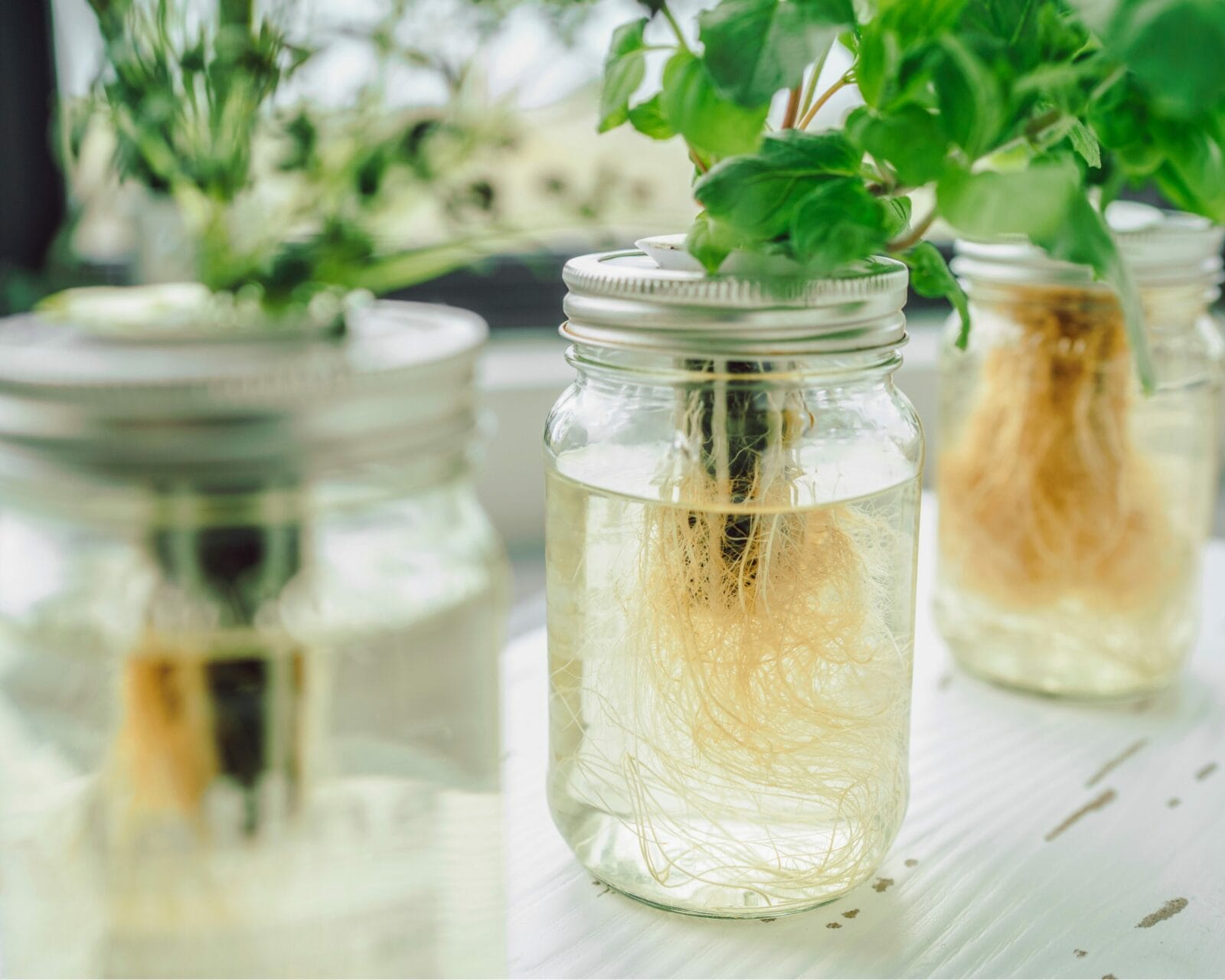Hydroponic gardening offers endless benefits for seniors. While the name can sound intimidating, it’s actually easier than traditional gardening! In addition, hydroponic gardening is an indoor activity that can be done with small amounts of space. This is great for seniors in apartments or senior living communities. Your hydroponic setup can be at counter height, eliminating the need for kneeling or bending over. Since they don’t use any soil, hydroponic gardens are also much easier to maintain and don’t require a lot of physical strain, unlike outdoor gardening.
As you can see, hydroponic gardening is a great hobby for seniors that can even improve your mental health and quality of life. Let’s explore more about how to get started with hydroponic gardening and which is the best system for you.
Understanding Hydroponic Gardening
Essentially, hydroponic gardening just refers to growing plants without soil. A hydroponic garden grows plants in sand, gravel, or just a nutrient liquid alone. This allows your garden to be successful in far less space than a traditional greenhouse or outdoor garden. Additionally, an indoor garden without soil prevents a lot of common pests and diseases that plague gardeners everywhere. Eliminating the need for soil also makes for easier cleanup and doesn’t require you to transfer large amounts of heavy dirt, which is a great bonus for seniors.
How Hydroponic Gardening Works
Because plants in your garden aren’t rooted in soil, where they would traditionally draw necessary nutrients, they need a special nutrient solution for “food” instead of just water. You can purchase this nutrient solution online, or at specialty plant nurseries and hardware stores. Your plants may also need some kind of support for their roots, like sand, gravel, perlite, clay pellets, or peat moss. If you use a tray-style system, that may be enough to support your plants.
Other than these nutrient and root support differences, hydroponic plants have the same needs as any other indoor plant. You’ll need sufficient light for your plant varieties, which can be done with grow lights if you don’t have enough sunlight. In the summer or in sunny climates, a west or south-facing windowsill might be enough.
Deep Water Culture (DWC) Systems
There are many types of hydroponic systems. The easiest method for senior beginners is the Deep Water Culture (DWC) system. It also doesn’t require a lot of supplies or expertise to get started.
In a DWC hydro system, you’ll just fill up a container with your nutrient solution. Your plants’ roots will grow in that solution. Next, since your plants’ roots won’t have access to the air, you’ll need to add an oxygen supply to your water. Most people use an air pump to pump bubbles into the water.
Getting Started with Hydroponic Gardening for Seniors
Now that you understand the basics of hydroponic gardening, let’s go through how to get started with your own hydroponic garden.
Of course, the first thing you’ll need is plants! You can start plants from seed, or plant small seedlings. For true beginners, choose a very small plant that’s already sprouted. A living herb plant from the grocery store is a great place to start.
Next, you’ll need:
- Nutrient solution
- A container
- Root support materials
- A pump for your oxygen
- A grow light, if you don’t have an area that gets at least 6 hours of sun per day.
You can make all this easy with a hydroponic gardening kit, like this one. These kits have everything you need except seeds or plants.
Choosing Plants for a Hydroponic Garden
We recommend choosing easy-to-grow plants for senior beginners, like herbs and lettuces. Ambitious gardeners might also want to try strawberries. All of these grow well both in small space and hydroponic conditions. Larger plants like tomatoes and cucumbers also do well in hydroponic gardens, but they will require additional height room, light, and trellis or cage support. For now, choose small plants and just get the hang of the unique requirements of soil-free gardening.
You can start plants from seed, available in stores or online, or buy small seedlings from your big box store, hardware store, or local nursery.
Caring for Your Hydroponic Garden
Now that you’ve chosen your plants and set up your hydroponic garden, it’s time to get your hands dirty–metaphorically speaking, of course! Like all gardens, hydroponic gardens have both daily or weekly and less frequent periodic tasks that must be done to keep your garden thriving.
Daily or Weekly Tasks
For your garden to function at its best, you’ll want to take care of a few quick things most days of the week.
- Check your water and solution levels. Make sure your garden has enough of the nutrient solution and water to fill the container. A quick glance is usually enough to see if you need to add more.
- Use a Total Dissolved Solids (TDS) meter to check that you have the right concentration of nutrient solution for your plants. You should do this every 1-3 days.
- Every few days, check the pH of your garden with a pH meter. Usually, you want a pH between 5.5 and 6.5, though requirements can change depending on which plants you’re growing. Use pH up or pH down if needed.
Periodic Tasks
Every week or two, take a minute to perform these periodic tasks that will keep your garden happy.
- Clean and replace nutrient solutions. Depending on the size and type of your system, you’ll want to empty it out, rinse the tank, and replace the nutrient solution about every 1-4 weeks.
- Check your pumps, timers, and lights (if using) to make sure everything is working as it should.
- Prune dead or dying leaves, or prune plants to make sure they’re not becoming too crowded or entangled.
Hydroponic gardens, like all plants, require some maintenance, but don’t let this deter you! You will be surprised how meditative and soothing these maintenance tasks can be. Caring for plants is really a gift that keeps on giving.
Benefits of Hydroponic Gardening for Seniors
Hydroponic gardening is a great option for all seniors, from seasoned gardeners on large amounts of land to beginners in apartments. You can use as much or as little space as you’d like, and spend as much or as little time gardening as you’d prefer. You’ll reap the benefits of fresh, whole vegetables, herbs, and fruit, which will allow you to eat healthier and more nutritious foods. There are also many mental health benefits of gardening, because it gives you a calm and peaceful hobby that connects you with the natural world.
Stellar Living hopes this guide to hydroponic for seniors helps you get started today!




